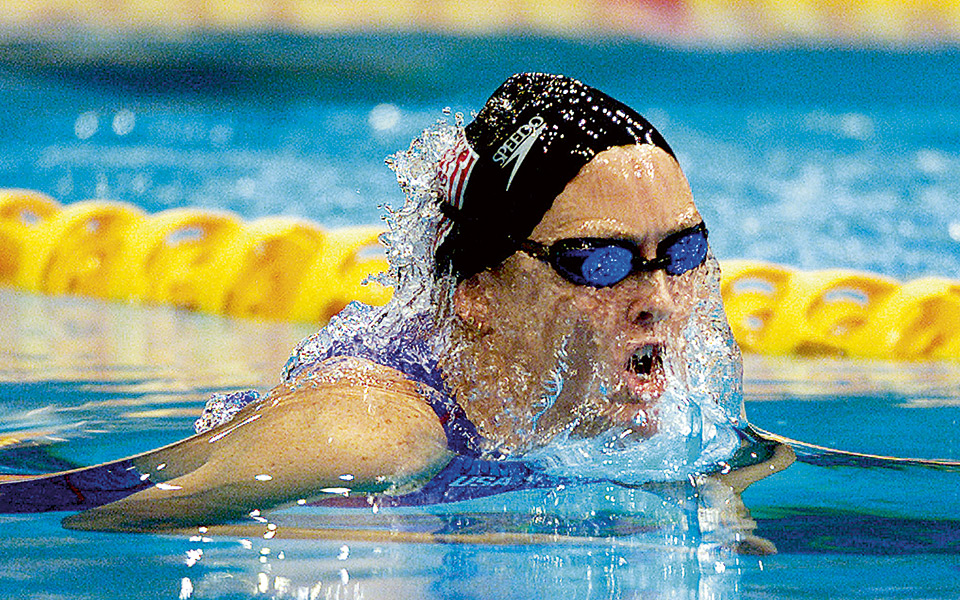Trischa Zorn
THE ULTIMATE RECORD-WOMAN
Trischa Zorn is usually described as the greatest athlete ever to have participated in the Paralympic Games. There is no doubt that she is the most successful. Zorn began competing at the age of 16, in 1980, and took part in all the Games since then up to and including the 2004 Paralympics in Athens. During this time, the United States swimmer, legally blind from birth, won a total of 55 medals, 41 of which were gold. This tally is higher than any other athlete (even the Olympic haul of the great Michael Phelps is 27 less). “People ask me how I do it,” she once told the Los Angeles Times, “they ask if I hit the walls or the lane lines. But it’s not really that hard. When I first started swimming, I bumped into the wall a few times, but I usually can see the black line on the bottom of the pool, or on backstroke I look for the flags and count my strokes.”
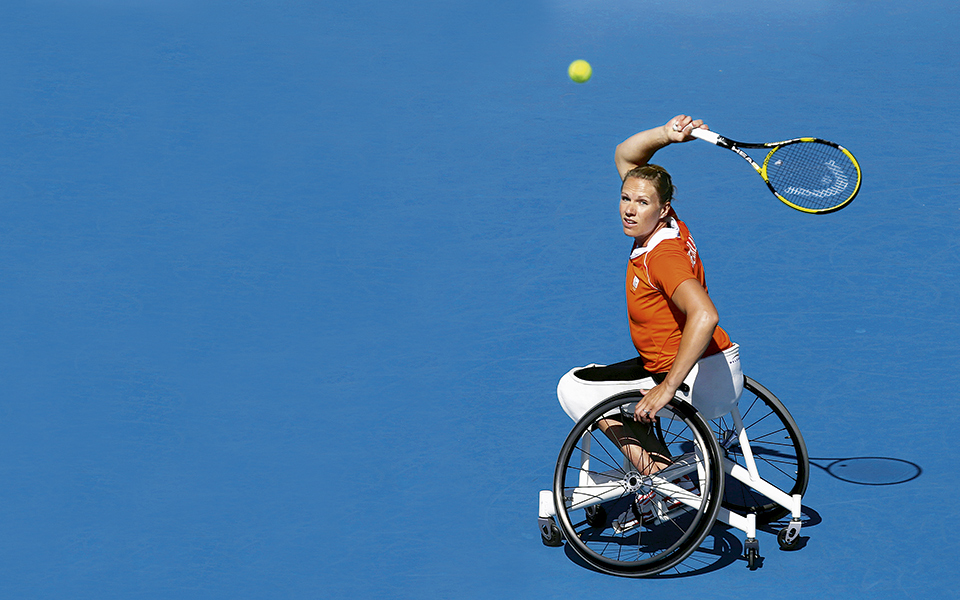
Esther Vergeer
QUEEN OF THE COURT
Esther Vergeer had endured serious health problems from an early age, including dizziness, fainting and neck pains. At the age of 8 she suffered a stroke and was finally diagnosed as having vascular myelopathy around her spinal cord. After two lengthy operations, her life was no longer in danger but both her legs were paralyzed. Nevertheless, the young Dutch girl showed incredible determination and willpower to become the greatest wheelchair tennis player of all time. What did she win? Seven Paralympic medals and 42 Grand Slam tournaments. When Vergeer retired in 2013, she ended on a winning streak of 470 matches. During the course of her career, she won 700 matches and lost only 25. The “Queen of the Court” is widely considered to have been the most dominant player ever in any sport.
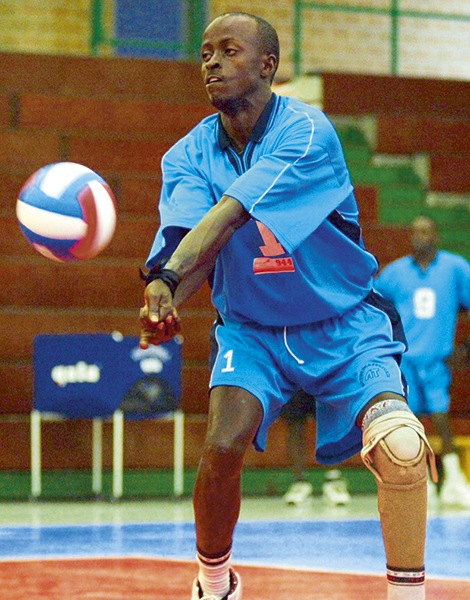
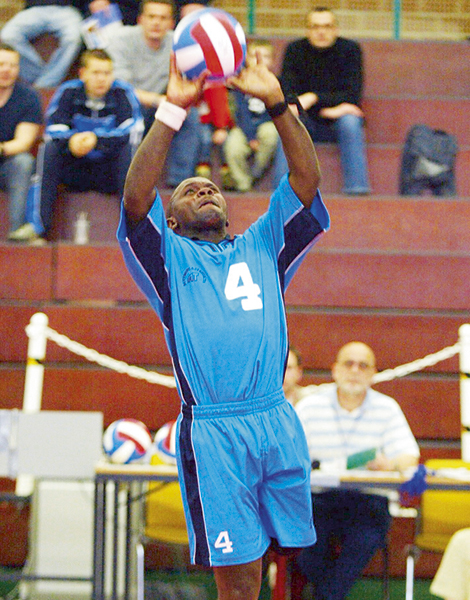
Dominique Bizimana – Jean Rukundo
From enemies to teammates
In the Sitting Volleyball event of London 2012, Rwanda lost each of its four games. This, however, in no way detracts from one of the most astonishing stories we have ever witnessed. Team captain Dominique Bizimana, had fought in his country’s civil war on the side of the Tutsi, losing a leg in battle. Vice-captain Jean Rukundo, an ethnic Hutu, had fought on the opposite side. He too had lost a leg after stepping on a landmine. Bizimana and Rukundo met as members of the national team, when both were trying to heal the scars left by the horrors they had experienced. Once enemies, they are now teammates and friends.
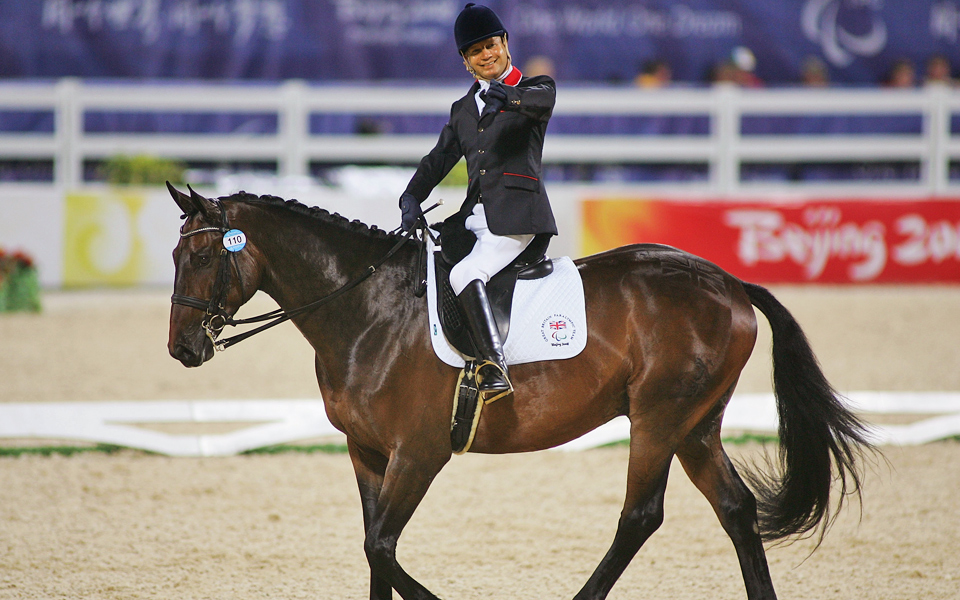
© MN Chan / Getty Images / Ideal Image
Lee Pearson
A natural in the saddle
In 1980, during an event at 10 Downing Street, then-British prime minister Margaret Thatcher carried him up some stairs after awarding him a “Children of Courage” medal. Lee Pearson was born with arthrogryposis (congenital joint contractures). No one could have imagined at the time that he would go on to become one of Britain’s most successful athletes. Pearson, however, learned to ride horses and soon realized that it was something he could do well. “I feel lucky that I found my talent, not unlucky that I was born with a disability,” he explained to The Telegraph a few years ago. He participated in four Paralympic Games (2000, 2004, 2008, 2012), winning 12 medals, 10 of which were gold.
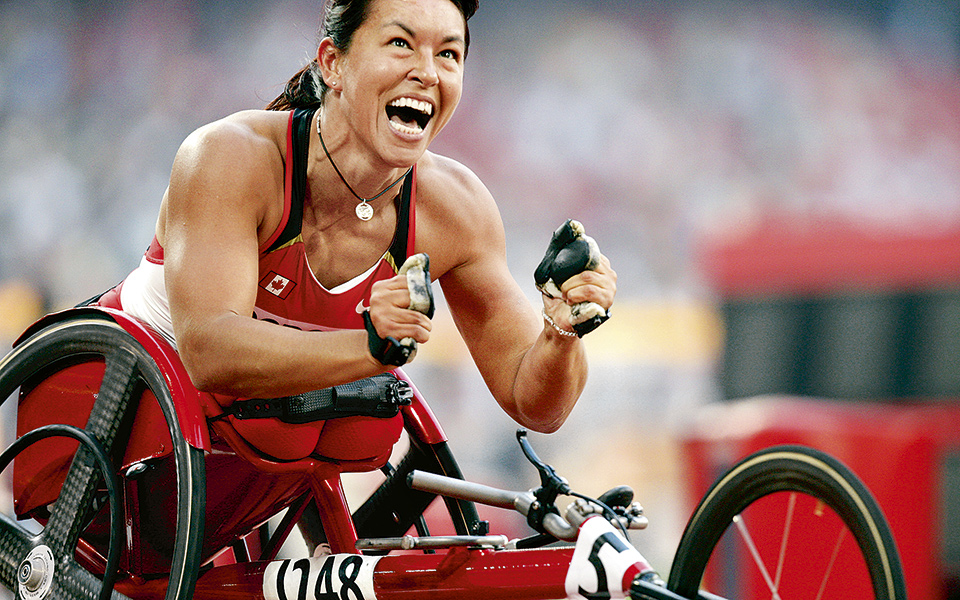
Chantal Petitclerc
Wheelchair lightning
From 1992 in Barcelona to the 2004 Paralympics in Athens, there was one athlete who dominated the 100, 200, 400 and 800 meter wheelchair races; her name: Chantal Petitclerc. During this period, the Canadian athlete won 14 gold, 5 silver and 2 bronze medals. It was a career she had not expected. Growing up in Quebec, Petitclerc had distinguished herself more through her academic accomplishments. But Petitclerc’s life changed forever at the age of 13 when a heavy door fell on her and fractured her spine. Since then, she has been confined to a wheelchair. A physical education teacher suggested that she learn to swim, and it was in the pool that she discovered her competitive drive, which she later used to become a world-class wheelchair racer. Today, Petitclerc is married to music composer James Duhamel, with whom she has one son. And since March 2016, she has taken on a new challenge after being named to the Senate of Canada on the initiative of Prime Minister Justin Trudeau.

